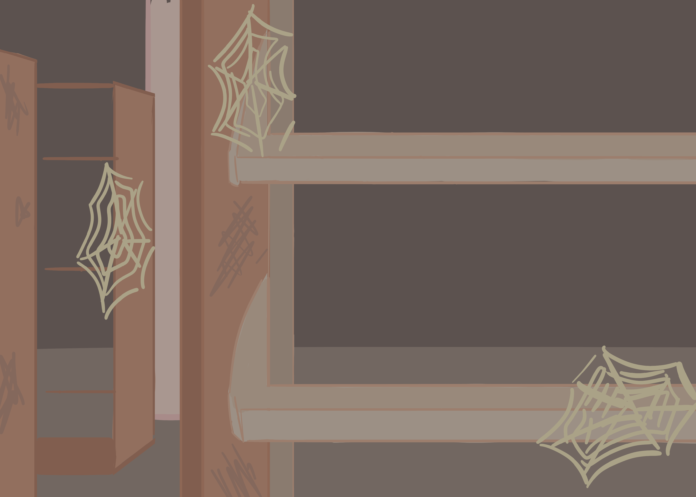Recent censorship bills passed in Florida should serve as a reminder to combat policies, even if they don’t directly affect us
By MICHELLE MENDOZA — mimendoza@ucdavis.edu
I couldn’t believe my eyes when I read the headline “Why Florida is getting rid of books in their libraries” in my morning newsfeed. Some videos included in the article featured shelves and shelves in a school’s library, usually full of books, all completely empty. However, upon further research, I learned that the books weren’t even the biggest issue at hand.
The governor of Florida, Rob DeSantis, passed House Bill (HB) 1467 last July to make purchased instructional material available to students and transparent to the public. The bill itself is designed to give more power to officials who are looking to ban books and other instructional materials containing “objectionable” content deemed harmful to minors. But what exactly is harmful to minors? Many conservatives seem to think that any material related to LGBTQ+ identities, sexuality, diversity or racism falls under that category.
Recently, Florida has mounted other efforts to take control of education. One example is HB 1557, dubbed the “Don’t Say Gay” bill, which prohibits instruction that discusses sexual orientation or gender identity for students from kindergarten to third grade. HB 7, a sister bill to HB 1557, called the “Stop W.O.K.E.” Act, was also passed last year and prohibits educational institutions from teaching students anything that would cause them psychological distress due to their race or other identities.
These bills have played a large part in the many restrictions on books. According to ABC News, more than one million books in Duval County, Florida are under review because they potentially violate one or more of these bills. The process of reviewing books can take a long time, and they must be covered or removed while under review, which can completely alter an instructor’s lesson plans. For now, teachers and students have no choice but to comply.
The bills together form a trifecta of censorship — and the politicians who passed them know it. Ron DeSantis, a Yale alumnus, graduated with a degree in history Magna Cum Laude, all while working and playing baseball. He knows the inside and outs of policy, and how to write it effectively.
Francine Prose put it best in The Guardian, “[DeSantis] learned what a good education is, what it means to be taught to think — and that is precisely what he is denying students who are less privileged than he and his Yale classmates.” If you don’t want people to question the institutions in place for them, then you don’t teach people to think critically about them.
Why is this especially important? DeSantis is currently gearing up to run for president in 2024.
Additionally, while Florida lawmakers have made successful attempts at controlling curricula, it’s not just happening in red states. As blue or progressive as California may seem, school districts in Southern California like Placentia-Yorba Linda Unified and Temecula Valley placed bans on teaching critical race theory last year.
But DeSantis’s campaign has met resistance, as have these Southern California towns. Young students see through this agenda, and it is clear that taking away books does not erase their stories or identity. It is important for us, as well, to be aware of the laws that may not affect us directly. If we aren’t it could lead to us ending up with another president who tries to undo progress.
Written by: Michelle Mendoza — mimendoza@ucdavis.edu
Disclaimer: The views and opinions expressed by individual columnists belong to the columnists alone and do not necessarily indicate the views and opinions held by The California Aggie.




